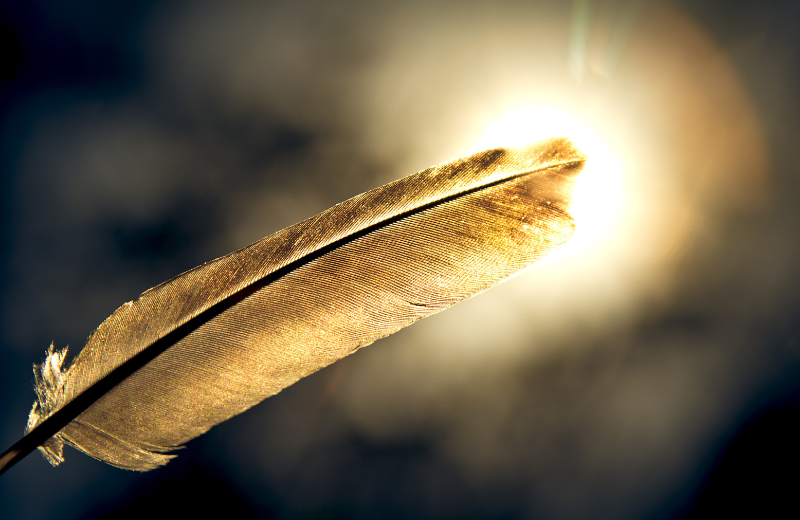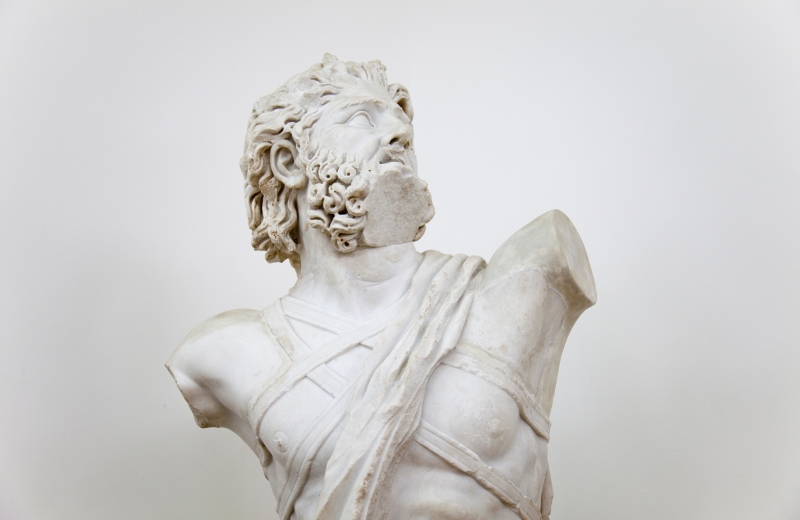Icarus is one of the most iconic figures in Greek mythology, known for his daring escape attempt and tragic downfall. The myth of Icarus touches on themes of ambition, hubris, and the consequences of overstepping human limitations.
This blog post will explore the story of Icarus, his powers, symbols, and the deeper meanings behind his myth.
Jump to:
Recommended for you!
Best SellersWhat is Icarus Known For?
The story of Icarus is most famous for its dramatic climax – his fall from the sky after flying too close to the sun. But to fully understand Icarus, it helps to look at his background. Icarus was the son of Daedalus, a master craftsman and inventor. Daedalus was known for creating incredible works, including the Labyrinth on Crete, where the Minotaur was kept.
But what makes Icarus so memorable isn't just his heritage – it's his ill-fated flight. The myth of Icarus and his wax wings has become a symbol of both human ambition and the danger of overreaching.
The Myths and Legends of Icarus

Icarus’ tale is one of the most well-known stories in Greek mythology, filled with themes of ambition, defiance, and ultimately, tragedy. Let’s take a look at the key moments that define this myth, starting with Icarus' family ties and the fatal flight that would seal his fate.
Icarus' Relationship with Daedalus
Icarus was the son of Daedalus, a master craftsman who had been imprisoned by King Minos of Crete. Daedalus' inventiveness was known across the land, and his expertise was evident in his creation of the infamous Labyrinth. When father and son were trapped, Daedalus crafted a bold escape plan: he fashioned wings for himself and Icarus out of feathers and wax.
The Fatal Flight: Ignoring His Father’s Warning
Daedalus carefully instructed Icarus to fly a balanced course – not too high, where the heat of the sun could melt the wax, nor too low, where the sea’s dampness would cause the wings to fail.
But as they took to the skies, the thrill of flight overwhelmed Icarus. Forgetting his father's warnings, he soared higher and higher toward the sun. The heat melted the wax holding his wings together, and, as a result, Icarus fell from the sky into the sea below, where he drowned. This part of the Aegean Sea was later named the Icarian Sea, a sombre reminder of his fate.
The Moral of the Myth
The myth of Icarus and Daedalus is often interpreted as a cautionary tale about the dangers of overambition and ignoring wise counsel. While Daedalus symbolises careful thought and wisdom, Icarus represents the impetuousness of youth, blinded by excitement and disregard for consequences.
The story reflects a human tendency to push boundaries without fully understanding the risks involved, leading to unfortunate consequences.
What Powers Does Icarus Have?
While Icarus himself was not a god or endowed with divine powers, his flight represents a symbolic form of power – the ability to transcend human limitations. With the help of his father’s craftsmanship, Icarus was able to take to the skies, something mortals could never do without the intervention of the gods.
In Greek mythology, flight was often associated with the divine. By flying, Icarus could be seen as challenging the gods, attempting to achieve something reserved for them. However, his downfall reminds us that mortals are not meant to overstep certain boundaries.
The Symbols of Icarus

The myth of Icarus is filled with symbolism, much of which has been interpreted in various ways over the centuries:
Wax Wings and the Sun
The wax wings are perhaps the most iconic symbol associated with Icarus. They represent ingenuity and human innovation, as well as the fragility of man-made creations. The sun, on the other hand, represents both enlightenment and danger. Icarus' ambition led him toward the light, but in doing so, he ultimately met his end.
Icarus Falling
The image of Icarus falling from the sky has inspired countless works of art, literature, and philosophy. His fall symbolises the consequences of hubris – the dangerous combination of pride and defiance. Artists such as Pieter Bruegel the Elder immortalised this moment in "The Fall of Icarus" painting, which shows Icarus’ legs disappearing into the water as those around him continue their daily lives, indifferent to his fate.
Icarus' Relationship With His Father

Icarus' relationship with his father, Daedalus, is central to his story. Daedalus was a well-known inventor, and his bond with Icarus highlights the theme of fatherly guidance. Daedalus tried to warn Icarus about the dangers of overconfidence, but his son’s youthful exuberance led to his downfall.
In some versions of the tale, his fall is seen as a metaphor for the complicated dynamics between fathers and sons – with Daedalus representing the cautious elder, and Icarus the impetuous youth.
Icarus' Worship and Legacy
Unlike many other figures in Greek mythology, Icarus was not worshipped as a god. However, his story has left a lasting legacy in art, literature, and philosophy. The myth of Icarus has been depicted in countless sculptures, paintings, and other forms of artwork. The Icarus sculpture and Icarus statue have become popular symbols of ambition and the human spirit.
In literature, the phrase "flying too close to the sun" has become synonymous with overambition. The story continues to resonate because it speaks to a fundamental aspect of the human condition – the tension between dreams and reality, and the consequences of ignoring limits.
Recommended for you!
Best SellersFrequently Asked Questions About Icarus in Mythology
What does Icarus mean in English?
The name Icarus comes from the ancient Greek word "Ἴκαρος" (Íkaros). While it doesn't have a direct English translation, the name is often associated with themes of ambition and flight, thanks to his myth. In a broader sense, calling someone an “Icarus” in English can refer to a person who overreaches or aims too high, much like the character himself.
What is the moral lesson of Icarus?
The story of Icarus teaches the importance of balance and the dangers of hubris. It warns against overambition and not listening to wise counsel. Icarus’ fate reminds us that while it is important to aim high, we must also be mindful of our limitations and the consequences of overstepping them.
What happened to Daedalus after Icarus' death?
After Icarus’ death, Daedalus was devastated by the loss of his son. He continued his journey and eventually settled in Sicily, where he found refuge with King Cocalus. Daedalus’ ingenuity still led him to great achievements, but the loss of Icarus haunted him, reminding him of the tragic cost of their escape.
Was Icarus happy when he fell?
The myth does not explicitly mention Icarus’ emotions as he fell, but it is widely interpreted that he was filled with regret as he plummeted towards the sea. His joy and exhilaration from flying quickly turned to fear and panic as the consequences of his actions became apparent.
Did Icarus have any relationships outside of his father?
The myth of Icarus focuses primarily on his relationship with his father, Daedalus. There is no mention of Icarus having a romantic partner, children, or other significant relationships. The myth’s central focus is on the father-son dynamic and the consequences of Icarus’ choices.
Study Greek Mythology for £29
The story of Icarus is just one of many fascinating tales in Greek mythology, rich with themes of power, revenge, and moral complexity. If you’d like to learn more about these myths and explore the characters, symbols, and stories that have shaped Western culture, consider enrolling in the Greek Mythology Diploma Course with Centre of Excellence. For a limited time, you can access the course at a discounted price of £29!













